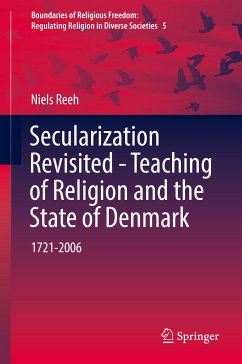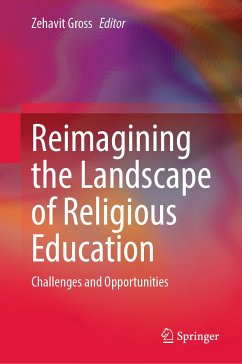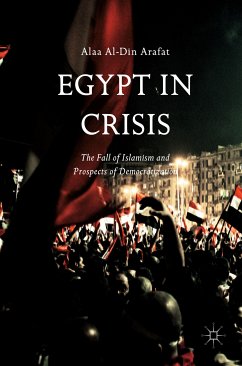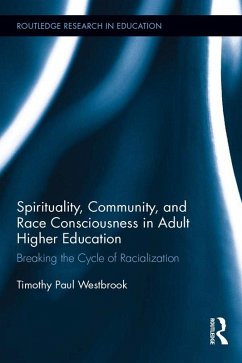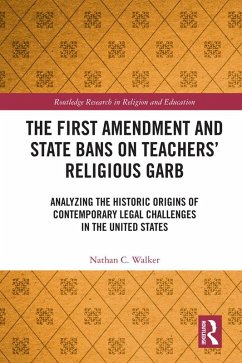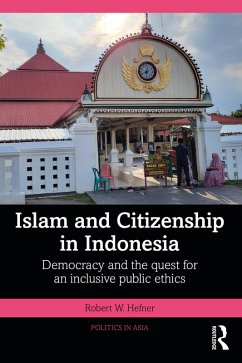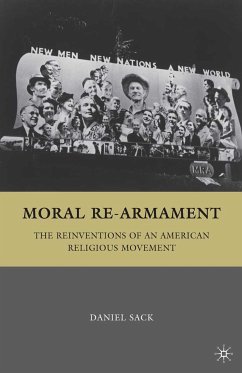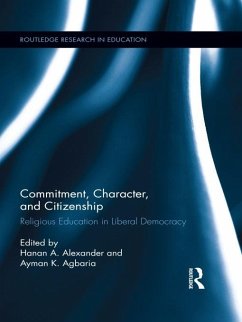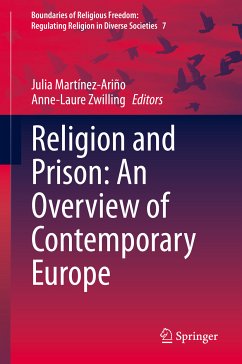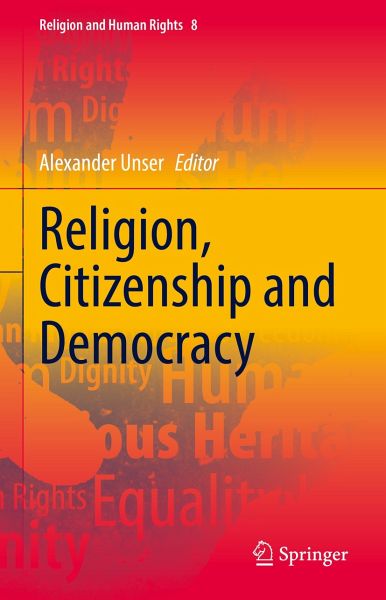
Religion, Citizenship and Democracy (eBook, PDF)
Versandkostenfrei!
Sofort per Download lieferbar
104,95 €
inkl. MwSt.
Weitere Ausgaben:

PAYBACK Punkte
52 °P sammeln!
This innovative volume is focused on the impact of religion on the realization of democratic citizenship. The researchers contributing provide empirical evidence on how religion influences attitudes towards citizenship and democracy in different countries. The book also tackles the challenges and opportunities for citizenship education.Experts contributing from sociology, political science, theology, and educational science look at the impact of religious beliefs and practices on democratic attitudes and behavior. Chapters also concern how religion influences the recognition of others as citiz...
This innovative volume is focused on the impact of religion on the realization of democratic citizenship. The researchers contributing provide empirical evidence on how religion influences attitudes towards citizenship and democracy in different countries. The book also tackles the challenges and opportunities for citizenship education.
Experts contributing from sociology, political science, theology, and educational science look at the impact of religious beliefs and practices on democratic attitudes and behavior. Chapters also concern how religion influences the recognition of others as citizens. The text appeals to graduates and researchers in these fields with a secondary market for the general interest reader.
Experts contributing from sociology, political science, theology, and educational science look at the impact of religious beliefs and practices on democratic attitudes and behavior. Chapters also concern how religion influences the recognition of others as citizens. The text appeals to graduates and researchers in these fields with a secondary market for the general interest reader.
Dieser Download kann aus rechtlichen Gründen nur mit Rechnungsadresse in A, B, BG, CY, CZ, D, DK, EW, E, FIN, F, GR, HR, H, IRL, I, LT, L, LR, M, NL, PL, P, R, S, SLO, SK ausgeliefert werden.



